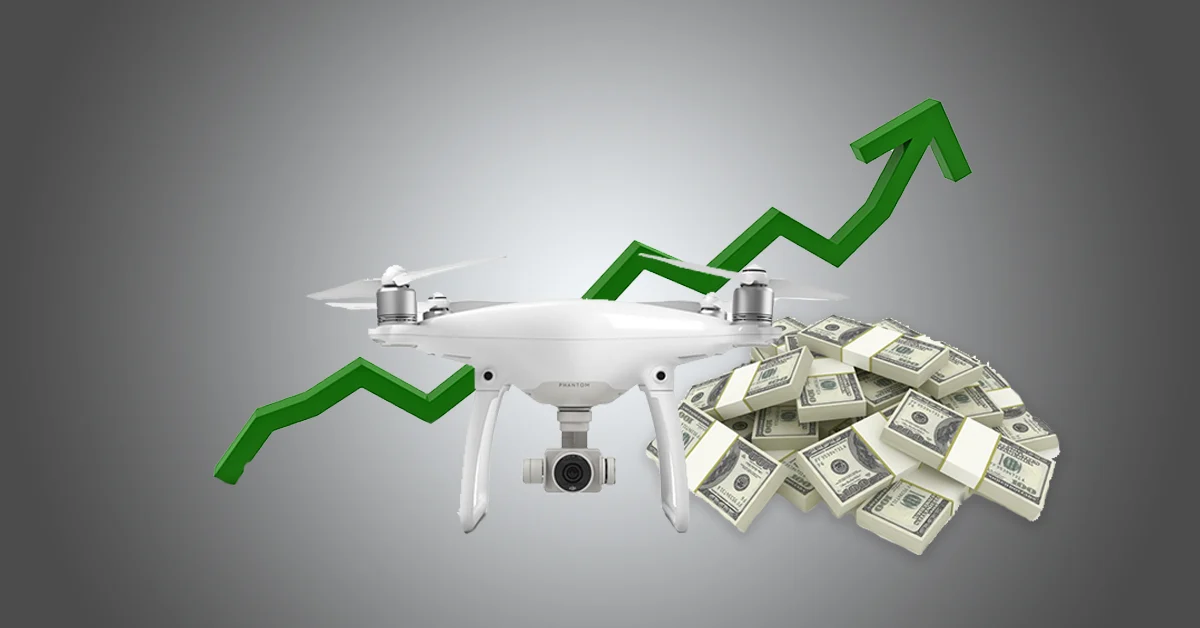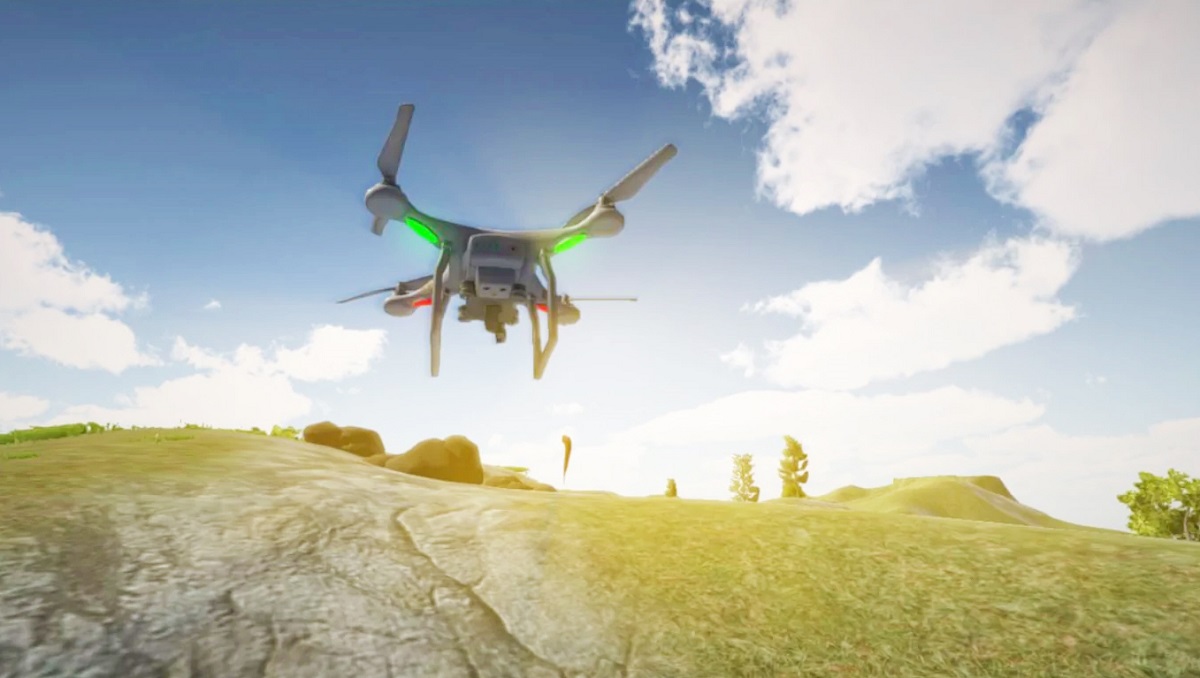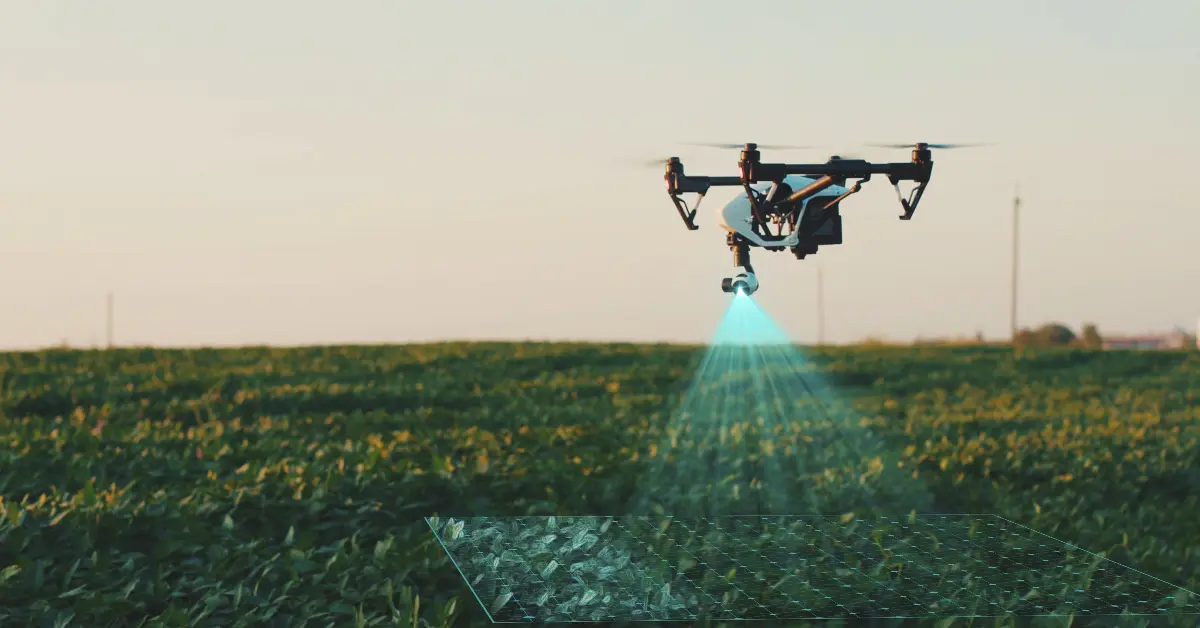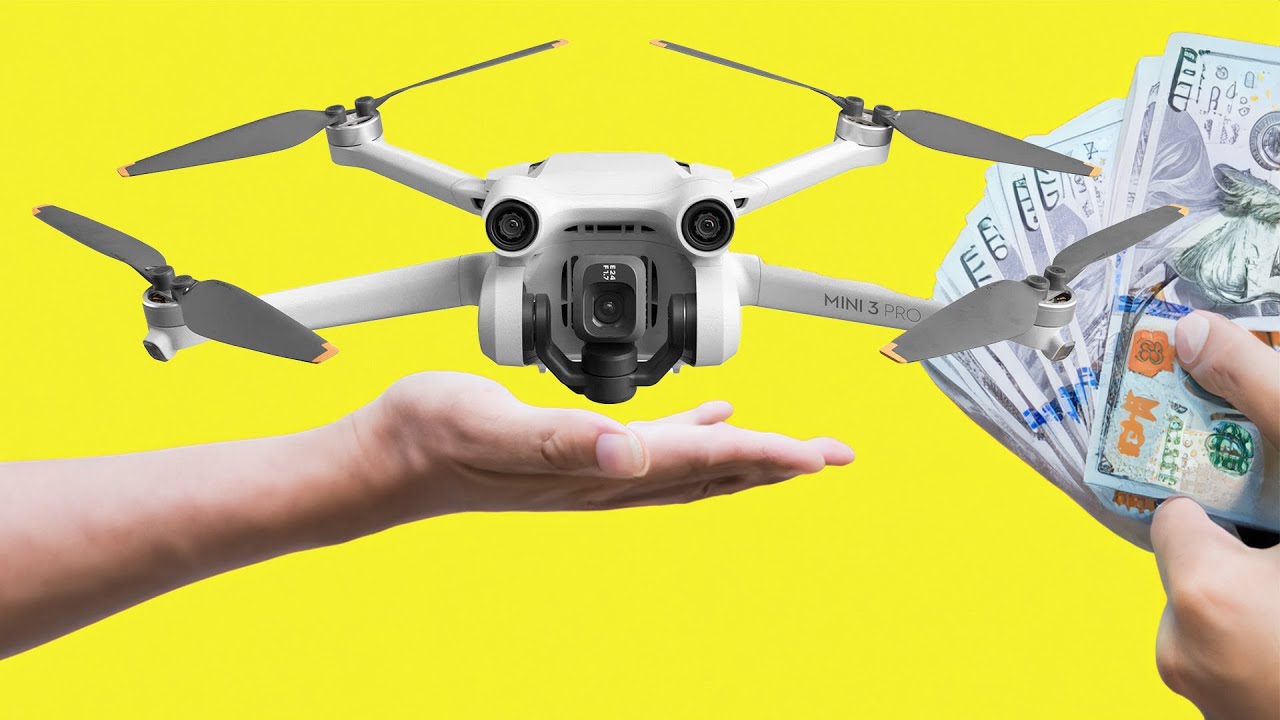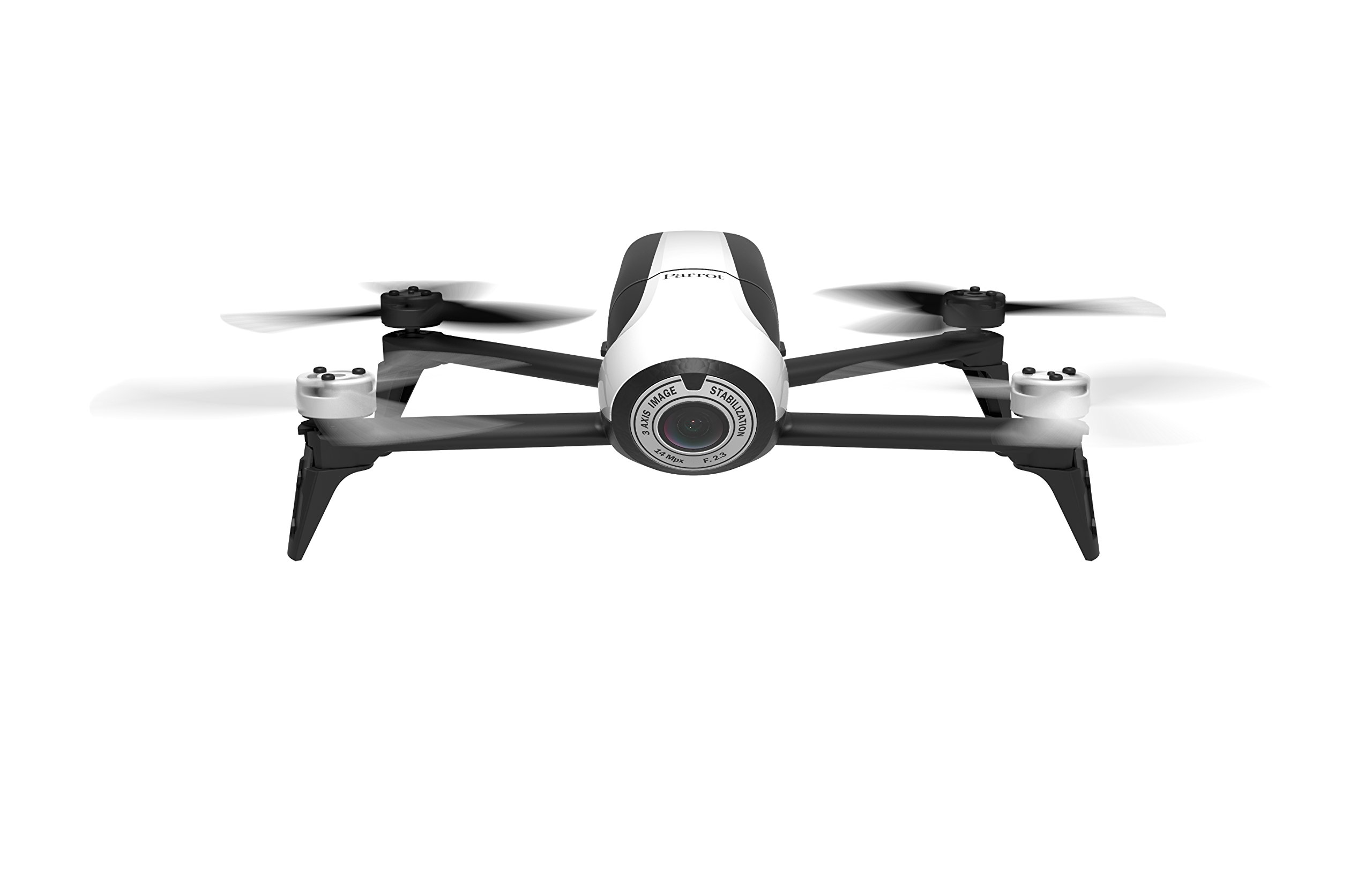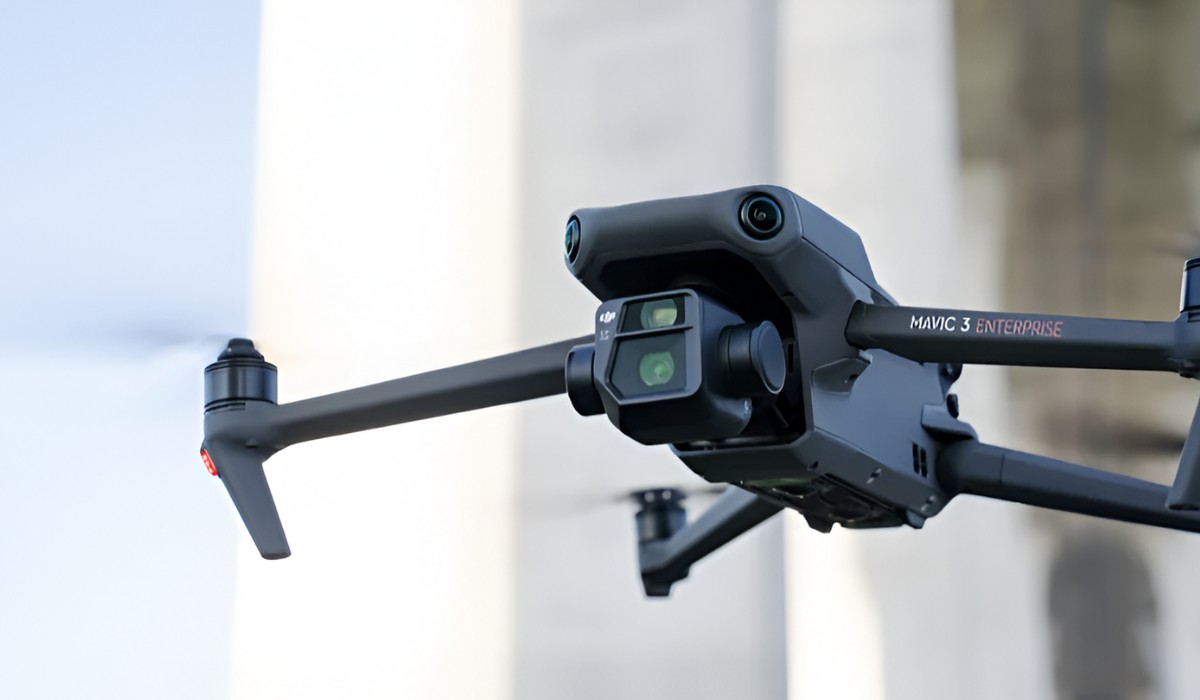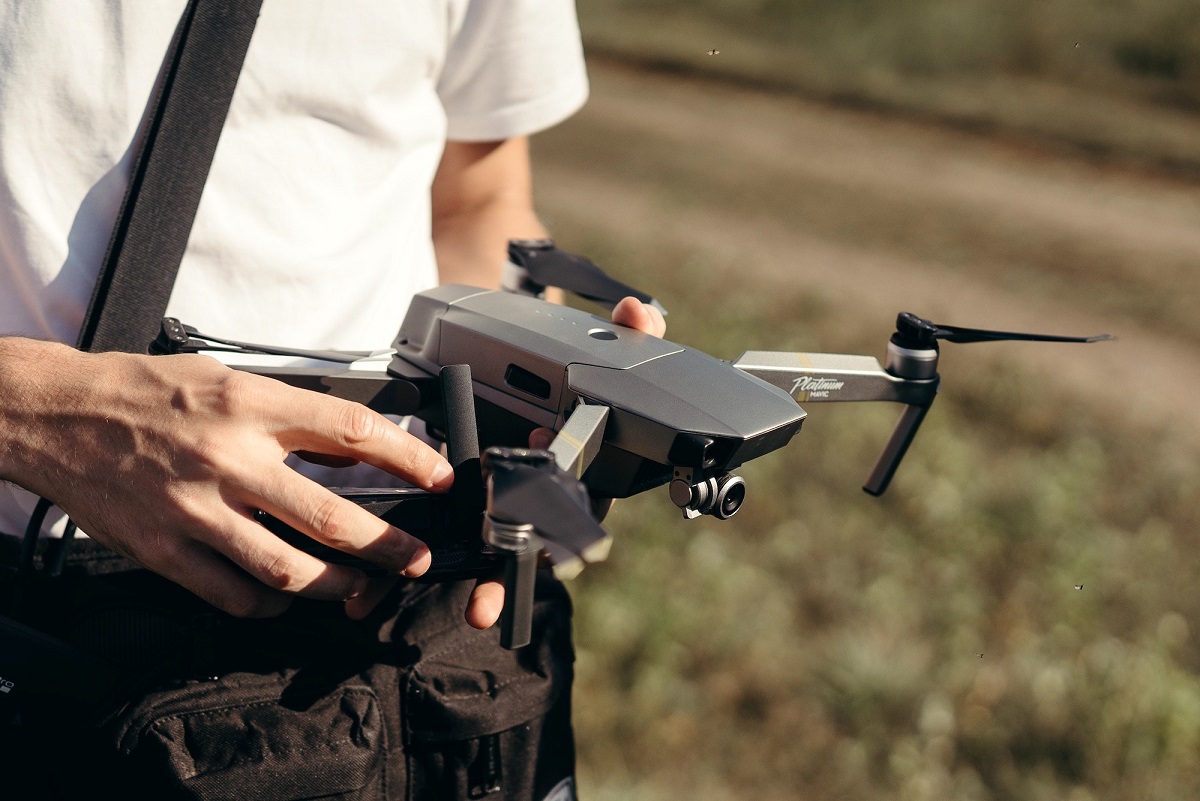Introduction
Unmanned aerial vehicles, commonly known as drones, have revolutionized various industries and opened up countless opportunities for aspiring entrepreneurs. With their ability to capture stunning aerial shots, collect data, and perform inspections from above, drones have become a valuable tool in multiple sectors. This has led to an increasing demand for skilled drone pilots and operators, creating a lucrative market for those looking to make money with a drone.
Whether you’re a hobbyist looking to turn your passion into a profitable venture or a professional seeking to expand your services, drones offer numerous avenues for generating income. The versatile nature of drones enables them to be utilized in a wide range of applications, including photography and videography, real estate marketing, aerial inspections, agriculture, and even drone racing.
In this article, we will explore the different ways you can make money with a drone and provide valuable tips on building a successful drone business. Whether you’re a beginner or an experienced pilot, there is something for everyone in the rapidly growing drone industry.
Before diving into the opportunities, it’s essential to understand the rules and regulations governing drone operations. Familiarize yourself with the local laws and obtain any necessary licenses or certifications. Following the guidelines ensures safety and compliance, enabling you to operate legally and confidently.
Now, let’s explore why drones are an excellent choice for those seeking a profitable venture!
Why Drones are a Great Way to Make Money
There are several reasons why drones have become a popular choice for individuals looking to make money. Here are some key factors that make drones a great option:
Versatility: Drones can be used in various industries, making them versatile tools for generating income. From aerial photography and videography to inspections and surveys, drones have the potential to cater to a wide range of clientele.
Low Start-up Costs: Unlike many other businesses, starting a drone-based venture requires relatively low initial investment. The cost of acquiring a good-quality drone and necessary accessories has become more affordable, allowing entry into the industry without breaking the bank.
Innovative Technology: With advancements in drone technology, the capabilities and features of drones continue to evolve. This makes it an exciting time to be part of the industry, as new opportunities are constantly emerging.
High-Demand Services: The demand for drone services is on the rise in various sectors. Businesses and individuals are now recognizing the value and benefits that drones bring, creating a lucrative market for drone operators.
Flexibility and Independence: Being a drone operator allows you to have a flexible schedule and work independently. You have the freedom to choose the types of projects you want to take on and can potentially work from any location.
In summary, drones present a unique opportunity to leverage their versatility, relatively low start-up costs, innovative technology, high-demand services, and the freedom that comes with running a drone business. These factors combine to make drones an exceptional choice for anyone interested in making money in a thriving industry.
Building a Drone Business: Where to Start
Starting a drone business requires careful planning and consideration. Here are some essential steps to take when building your drone business:
Educate Yourself: Begin by educating yourself about drones, their capabilities, and the various applications they can be used for. Take the time to learn about drone regulations, safety guidelines, and best practices for operating a drone business.
Choose the Right Drone: Selecting the right drone for your business is crucial. Consider factors such as flight time, camera quality, payload capacity, and stability. Depending on the services you plan to offer, you may need to invest in specialized drones such as those equipped with thermal cameras or LiDAR sensors.
Obtain Necessary Licenses and Permits: Depending on your location, you may need to obtain licenses and permits to operate commercially. Familiarize yourself with the regulations in your region and ensure you adhere to them to avoid any legal issues.
Invest in Quality Equipment: Besides the drone itself, investing in quality equipment and accessories is essential. This may include extra batteries, memory cards, filters, drone cases, and propellers. Having backup equipment ensures that you can continue your work without interruptions.
Build a Professional Website and Portfolio: Create a professional website to showcase your services and portfolio. Include high-quality images and videos to demonstrate your capabilities. A well-designed website will help attract potential clients and establish credibility.
Market Your Services: Use online marketing techniques such as search engine optimization (SEO), social media marketing, and content creation to promote your drone services. Networking with local businesses, attending industry events, and joining professional associations can also help you gain exposure and find clients.
Offer Competitive Pricing: Research the market and analyze your competitors’ pricing to set reasonable rates for your services. Offering competitive pricing in the initial stages of your business can help you attract clients and build a solid reputation.
Provide Excellent Customer Service: Delivering exceptional customer service is crucial for building long-term relationships with clients and getting referrals. Respond promptly to inquiries, maintain clear communication, and consistently deliver high-quality work.
Continuously Improve Your Skills: Stay updated with the latest advancements in drone technology and industry trends. Attend workshops, webinars, and training programs to enhance your skills and knowledge. Continual improvement will help you stay ahead in this rapidly evolving industry.
By following these steps, you will position yourself for success in the drone industry. Building a drone business takes time and effort, but with the right approach and dedication, you can carve out a profitable niche in this exciting field.
Finding Jobs as a Drone Pilot
As a drone pilot, there are various avenues you can explore to find job opportunities. Here are some effective strategies to help you land jobs as a drone pilot:
Online Job Platforms: Utilize online job platforms dedicated to connecting drone pilots with clients. Websites such as Upwork, DroneBase, and AeroHive Network offer a wide range of drone-related job postings. Create a compelling profile highlighting your skills, experience, and portfolio to attract potential clients.
Networking: Networking is an invaluable tool for finding job opportunities. Attend industry events, trade shows, and conferences related to drones and aerial photography. Connect with professionals and business owners who may require drone services. Building relationships can lead to referrals and long-term partnerships.
Partner with Other Professionals: Collaborating with professionals in complementary industries can open up new job opportunities. Consider partnering with photographers, videographers, real estate agents, construction companies, or surveyors. Offer your drone services as an add-on to their existing services, providing them with a unique selling point.
Reach Out to Businesses Directly: Research local businesses that can benefit from drone services and reach out to them directly. Industries such as real estate, agriculture, construction, and insurance often require aerial imagery, inspections, and surveys. Showcase the advantages and cost-effectiveness of using drones in their operations.
Create a Portfolio: Develop a strong portfolio showcasing your best aerial shots and projects. Include a variety of industries and applications to demonstrate your versatility. A well-curated portfolio will help you stand out to potential clients and give them confidence in your abilities.
Offer Pro Bono Work: In the early stages of your drone career, offering pro bono or discounted services can help you build a solid reputation and gain experience. Consider volunteering your drone services for local nonprofit organizations, community events, or charities. This will not only allow you to practice your skills but also create goodwill and generate potential referrals.
Stay Informed about Local Projects: Keep track of local development projects, construction initiatives, and events in your area. These often require aerial documentation or videography. By staying informed, you can proactively reach out to the relevant parties and offer your services.
Build a Strong Online Presence: Create a professional website and establish a presence on social media platforms such as Instagram, Facebook, and LinkedIn. Regularly share your work, engage with your audience, and demonstrate your expertise in the drone industry. This will help you attract clients through organic search and showcase your professionalism.
By employing these strategies, you can increase your chances of finding rewarding job opportunities as a drone pilot. Persistence, networking, and a proactive approach will be key to your success.
Different Ways to Make Money with Your Drone
Drones offer a diverse range of opportunities for making money. Here are some of the different ways you can capitalize on your drone and turn it into a profitable venture:
Photography and Videography Services: One of the most popular ways to make money with a drone is by offering aerial photography and videography services. Capture stunning aerial shots for weddings, real estate listings, events, or promotional material. High-quality aerial imagery can add a unique perspective and enhance the visual appeal of any project.
Real Estate Marketing: Drones have revolutionized the real estate industry by providing breathtaking aerial footage of properties. Offer your services to real estate agents and homeowners looking to showcase their listings from a captivating aerial viewpoint. Aerial images and videos help attract potential buyers and differentiate listings in a competitive market.
Aerial Inspections and Surveys: Drones can access hard-to-reach or hazardous areas, making them perfect for conducting inspections and surveys. Inspect rooftops, power lines, bridges, or infrastructure for maintenance or assessment purposes. Provide detailed reports and imagery to clients, saving them time, money, and ensuring safety.
Agriculture and Crop Monitoring: Drones equipped with specialized sensors can assist farmers in monitoring crops, identifying areas of concern, and optimizing irrigation and fertilization. Offer agricultural mapping services to provide valuable data, such as plant health, weed identification, or yield estimation. Help farmers make informed decisions to enhance their productivity and reduce costs.
Drone Racing and Competitions: If you have a knack for piloting drones, consider participating in drone racing competitions. These events offer cash prizes and sponsorships for skilled individuals who can navigate drone obstacle courses at high speeds. With the growing popularity of drone sports, this can be an exciting way to showcase your piloting skills and make money.
Drone Training and Education: Share your expertise by offering drone training and education services. Provide both theoretical and practical lessons to beginners who want to learn how to fly a drone safely and responsibly. You can also offer specialized training for individuals looking to obtain their commercial drone pilot licenses. Educational workshops and online courses can be an excellent source of additional income.
These are just a few examples of the many ways you can make money with your drone. The key is to identify your niche, showcase your skills, and provide exceptional value to your clients. With a bit of creativity and perseverance, your drone can become a powerful tool for generating income in a rapidly growing industry.
Photography and Videography Services
Aerial photography and videography services are among the most popular and lucrative ways to make money with a drone. The unique perspective that drones offer allows photographers and videographers to capture stunning aerial shots that were once only possible with expensive equipment or from a helicopter.
Whether it’s capturing breathtaking landscapes, documenting special events, or creating stunning promotional content, aerial photography and videography have a wide range of applications. Here are some key points to consider when offering these services:
Real Estate Photography: Real estate agents and homeowners often hire drone pilots to capture captivating aerial shots of properties. These images provide potential buyers with a unique view of the property’s surroundings, layout, and amenities. By offering high-quality aerial photography, you can help real estate professionals stand out in a competitive market and attract more potential buyers.
Event Coverage: Special events such as weddings, concerts, and sporting events can benefit from aerial photography and videography. Drones can capture sweeping shots of the venue, crowd, and overall atmosphere, adding an exciting perspective to the event coverage. Aerial footage can be seamlessly incorporated into event highlight videos or shared on social media platforms, enhancing the overall experience for attendees.
Landscape and Nature Photography: Drones provide photographers with the opportunity to capture stunning aerial views of landscapes, national parks, and natural wonders. From rugged coastlines to vast mountain ranges, drones enable photographers to showcase the grandeur and beauty of nature from a unique perspective. These awe-inspiring images can be sold as prints or licensed for commercial use, allowing you to monetize your artistic vision.
Promotional Content Creation: Businesses often require captivating visuals for their marketing and promotional materials. Drones can provide eye-catching aerial footage for advertisements, company profiles, product launches, and more. Whether it’s showcasing a hotel resort, highlighting a travel destination, or promoting a new commercial development, aerial photography and videography can help businesses communicate their message effectively and attract customers.
Portfolio Development: Building a strong portfolio is vital when offering photography and videography services. Showcase your best aerial shots in an online portfolio to attract potential clients. Highlight your expertise in capturing unique perspectives, composition, and the overall quality of your work. Regularly update your portfolio with new projects to demonstrate your growth and versatility as a drone photographer.
Ensure Legal Compliance: When providing photography and videography services, it’s essential to adhere to local drone regulations and obtain any necessary permits or licenses. Familiarize yourself with the rules and limitations of operating a drone commercially in your area to ensure that you are operating legally and safely. This will not only protect your reputation but also give clients confidence in your professionalism.
By offering aerial photography and videography services, you can tap into a growing market and showcase the world from an extraordinary perspective. With your drone, a creative eye, and a passion for capturing stunning imagery, you can turn your hobby into a profitable venture and leave a lasting impact on your clients.
Real Estate Marketing
Aerial photography and videography have become a game-changer in the real estate industry, providing a unique and captivating way to showcase properties. By offering drone services specifically tailored to real estate marketing, you can carve out a profitable niche in this competitive market.
Here are some key points to consider when offering drone services for real estate marketing:
Aerial Property Showcasing: Drones allow you to capture stunning aerial shots of residential and commercial properties. Showcase the property’s exterior, surrounding landscapes, and nearby amenities from unique angles that highlight its best features. These aerial images provide potential buyers with a comprehensive view of the property, helping them make informed decisions.
Virtual Tours: Take real estate marketing to the next level by offering virtual tours using drone footage. By combining aerial shots with ground-level footage, you can create an immersive experience for potential buyers. Virtual tours allow viewers to navigate through the property digitally, giving them a realistic sense of the layout, size, and overall aesthetic appeal.
Land Development and Construction Progress: Drones can also be used to document land development projects and showcase the progress of construction. Capture aerial images and videos at various stages of the project, documenting the evolution from an empty plot of land to a fully developed site. These visuals can be used for project updates, investor presentations, or marketing materials.
Highlighting Neighborhoods and Surrounding Areas: Aerial shots can also be used to highlight the neighborhood and surrounding areas of the property. Showcase nearby parks, schools, shopping centers, and other amenities that contribute to the property’s appeal. By providing a broader perspective of the area, you can help potential buyers envision the lifestyle and convenience they will enjoy by living in that location.
Stand Out from the Competition: With the increasing popularity of drone technology, many real estate agents are incorporating aerial visuals into their marketing strategies. By offering high-quality drone services, you can help agents stand out and differentiate their listings from the competition. Showcasing properties from unique angles and perspectives will make them more memorable and attract potential buyers who are looking for something extraordinary.
Collaborate with Real Estate Professionals: Build relationships with real estate agents, brokers, and property developers in your area. Offer your drone services as an add-on or complementary service to their existing marketing packages. Collaborating with professionals who understand the value of aerial visuals will provide a consistent stream of clients and expand your network within the real estate industry.
Ensure Professionalism and Attention to Detail: When offering real estate marketing drone services, it’s crucial to maintain professionalism and attention to detail. Deliver high-quality images and videos that accurately represent the property and its surroundings. Pay attention to composition, lighting, and timing to capture visually appealing visuals that will make potential buyers fall in love with the property.
By tapping into the ever-growing real estate market, offering exceptional drone services, and demonstrating the value of aerial visuals, you can position yourself as a trusted and sought-after drone operator within the real estate industry.
Aerial Inspections and Surveys
Utilizing drones for aerial inspections and surveys has transformed various industries, making it safer, more cost-effective, and efficient. Drones offer a unique perspective, allowing for detailed and comprehensive assessments of structures, infrastructure, and land areas. Here are key points to consider when offering aerial inspections and surveys:
Rooftop Inspections: Drones can effectively inspect rooftops, eliminating the need for manual inspections, scaffolding, or climbing hazardous heights. Capture high-resolution imagery and videos to identify damages, roof conditions, or potential areas for improvement. This enables timely repairs, preventative maintenance, and accurate assessment reports.
Infrastructure Assessments: Conducing aerial inspections of infrastructure, such as bridges, towers, and power lines, is essential for maintenance and safety protocols. Drones equipped with high-resolution cameras can provide detailed imagery, helping identify structural issues, corrosion, or damage that may be invisible or difficult to detect from the ground.
Construction Site Monitoring: Drones offer a unique advantage in monitoring construction sites from the air, providing a comprehensive overview and progress updates. Capture aerial imagery and videos to track construction phases, document workmanship, and identify potential issues. This helps project managers, contractors, and stakeholders monitor progress, ensure adherence to plans, and identify any necessary adjustments.
Environmental Surveys: Aerial surveys can be useful in assessing environmental conditions, such as coastal erosion, forest health, or wildlife habitats. Drones equipped with specialized sensors can collect data, capturing detailed imagery that aids in environmental analysis and decision-making. This supports conservation efforts, land management, and scientific research.
Land Mapping and Surveying: Drones can efficiently map vast land areas, creating accurate topographic models, orthomosaic maps, and 3D models. This is particularly useful in agriculture, land development, and urban planning. Save time and costs by replacing traditional surveying methods with drone technology, offering precise measurements, boundary demarcation, and volume calculations.
Utility and Infrastructure Inspections: Drones play a vital role in inspecting utility structures such as power lines, wind turbines, and pipelines. Capture thermal imagery to detect equipment malfunctions, leaks, or heat anomalies. This helps mitigate potential risks, optimize maintenance schedules, and reduce downtime for essential infrastructure.
Ensure Compliance and Safety: When conducting aerial inspections and surveys, it is important to adhere to local regulations and obtain necessary permits. Prioritize safety, develop pre-flight checklists, and follow safety protocols to minimize risks. By maintaining professionalism, ensuring compliance, and delivering high-quality inspection reports, you can build trust with clients and establish yourself as a reliable and reputable aerial inspection provider.
By offering aerial inspections and surveys, you provide businesses and organizations with invaluable data and insights. Drones enable swift and accurate assessments, resulting in improved safety, efficiency, and cost savings across various industries.
Agriculture and Crop Monitoring
The agricultural industry has greatly benefited from the integration of drones, transforming traditional farming practices into more efficient and precise operations. Drones provide farmers with valuable data and insights that aid in crop monitoring and management. Here are key points to consider when offering agricultural and crop monitoring services:
Aerial Imagery for Crop Health Assessment: Drones equipped with specialized sensors, such as multispectral or thermal cameras, can capture high-resolution images of crops. These images provide valuable information about plant health, identifying areas of stress, nutrient deficiencies, or disease outbreaks. By identifying potential issues early on, farmers can take proactive measures to mitigate losses and optimize crop yield.
Optimizing Irrigation and Fertilization: Drones can assist farmers in optimizing irrigation and fertilization practices. By analyzing crop data and moisture levels obtained through aerial surveys, farmers can determine precisely where irrigation is needed and in what quantities. This ensures efficient water usage and prevents over or under-fertilization, leading to better crop growth and resource management.
Precision Mapping and Field Analysis: Drones offer precise mapping and field analysis capabilities. By capturing aerial imagery and utilizing data processing software, farmers can generate accurate field maps, including plant counts, weed density, and variability mapping. This information helps make informed decisions regarding seed placement, fertilizer distribution, and pesticide application.
Disease and Pest Management: Drones equipped with advanced sensors can identify early signs of crop diseases or pest infestations. By detecting specific stress patterns or variations in crop health, farmers can deploy targeted treatment measures, minimizing the need for widespread application of pesticides or fungicides. This approach reduces costs and minimizes the impact on the environment.
Yield Estimation and Crop Inventory: Drones can assist in estimating crop yields and conducting accurate crop inventories. By analyzing plant density and biomass through aerial imagery, farmers can get an estimation of their expected yield. This information is crucial for planning harvest logistics, predicting market supply, and assisting with financial forecasting.
Field Monitoring and Documentation: Drones play a pivotal role in monitoring fields throughout the growing season. By capturing regular aerial imagery, farmers can document the progress of crops, assess the impact of farming practices, and track crop development over time. This data proves valuable when analyzing the effectiveness of different cultivation techniques and making informed decisions for future seasons.
By offering agricultural and crop monitoring services, you provide farmers with valuable insights and tools to enhance their productivity and sustainability. Drones are revolutionizing the agricultural industry by optimizing resource allocation, improving crop health, and transforming the way farmers approach precision farming.
Drone Racing and Competitions
Drone racing and competitions have surged in popularity in recent years, presenting a thrilling and competitive side to the drone industry. This adrenaline-fueled sport combines high-speed drone piloting skills with strategic agility. If you have a passion for drones and excellent piloting abilities, here are some key points to consider when exploring drone racing and competitions:
Exciting and Fast-Paced Sport: Drone racing is an exhilarating and fast-paced sport that challenges pilots to navigate their drones through obstacle-filled courses at high speeds. This dynamic and visually captivating sport captivates audiences and provides an engaging experience for both participants and spectators.
Competitive Events and Leagues: Drone racing competitions are organized at various levels, from local meetups to national and international events. Attend or participate in these events to showcase your piloting skills and compete against other talented drone pilots. Some competitions even offer cash prizes, sponsorships, or opportunities to join professional drone racing teams.
Customizable Racing Drones: Drone racing allows pilots to customize their racing drones according to their preferences and racing style. From selecting high-performance motors and flight controllers to choosing the optimal camera and transmitter setup, drone racers have the freedom to create unique racing machines that maximize speed and maneuverability.
Challenging Obstacle Courses: Drone racing courses are designed to be challenging, featuring intricate obstacle layouts that test pilots’ agility and precision. These courses often have tight turns, complex gate configurations, and daring aerial maneuvers. Mastering the skills necessary to navigate these courses takes practice, strategy, and a deep understanding of drone capabilities.
Community and Networking Opportunities: Drone racing events bring together a community of like-minded individuals passionate about drones and racing. This provides an excellent opportunity to network with fellow drone enthusiasts, industry professionals, and potential sponsors. Building connections within the drone racing community can lead to collaborations, mentorship, and career opportunities.
Promoting Drone Technology Advancements: Drone racing not only showcases the skills of pilots but also promotes and advances drone technology. Manufacturers and developers often use racing events as platforms to test and present new drone prototypes or features. As a participant, you contribute to the continuous improvement and innovation of drone technology.
Streaming and Broadcasting: Drone racing has gained traction in the media, with events being streamed and broadcasted online. This provides an opportunity to build a personal brand and gain exposure as a skilled drone racer. Engage with the online audience, share your experiences, and showcase your racing skills through social media platforms and live streaming channels.
Participating in drone racing and competitions allows you to push the boundaries of drone piloting, engage in thrilling competition, and connect with a vibrant community of drone enthusiasts. It’s an exciting way to demonstrate your skills, contribute to the advancement of drone technology, and pave a path towards becoming a professional drone racer.
Drone Training and Education
With the growing popularity and demand for drone pilots, the need for comprehensive drone training and education has never been greater. Offering drone training and education services can be a lucrative venture that caters to both aspiring drone pilots and organizations seeking to enhance their drone operations. Here are some key points to consider when offering drone training and education:
Flight Training for Beginners: Aspiring drone pilots often seek guidance on how to safely and confidently operate drones. Offer flight training programs tailored to beginners, teaching them the basics of drone piloting, safety protocols, and regulations. Practical hands-on experience combined with theoretical knowledge will set them on the right path to becoming skilled pilots.
Commercial Pilot Training: Many countries require a commercial drone pilot license for individuals looking to operate drones for commercial purposes. Provide training courses that cover the necessary knowledge and skills required to obtain these licenses. This includes topics such as airspace regulations, flight planning, emergency procedures, and payload management. These programs ensure that pilots are well-prepared to operate drones legally and safely in commercial settings.
Specialized Training Programs: Offer specialized training programs for specific industries or applications. For example, provide training on aerial photography and videography techniques, advanced mapping and surveying using drones, or inspection and maintenance procedures for infrastructure. By catering to the unique needs of different sectors, you can position yourself as an expert in specialized drone operations.
Online Courses and Learning Materials: Develop online courses and learning materials that provide flexibility for students to learn at their own pace. Create video tutorials, interactive quizzes, and downloadable resources to enhance their learning experience. Offering online courses allows you to reach a broader audience beyond your local area and potentially generate passive income.
Workshops and Seminars: Organize workshops and seminars to provide hands-on training and engage with aspiring drone pilots and industry professionals. These events create a platform for participants to learn from experienced instructors, network with like-minded individuals, and gain valuable insights into the drone industry. Workshops can focus on specific topics such as aerial photography, mapping, inspections, or drone maintenance.
Partnerships with Organizations and Institutions: Establish partnerships with organizations, educational institutions, or companies that can benefit from drone training programs. Build relationships with schools, colleges, or vocational training centers to offer drone education as part of their curriculum. Collaborate with companies that use drones in their operations, providing tailored training that enhances their workforce’s skills and understanding of drone technology.
Continued Education and Advanced Courses: Offer continued education and advanced courses to cater to experienced drone pilots who want to expand their skills and knowledge. These courses can cover specialized areas such as advanced flight maneuvers, cinematography techniques, or advanced mapping software applications. By providing opportunities for continued education, you can attract drone enthusiasts looking to stay updated with the latest industry trends and advancements.
By offering drone training and education, you contribute to the professional development and skills enhancement of aspiring pilots and organizations. Your expertise and guidance will help individuals and businesses operate drones safely, legally, and efficiently while also fueling the growth of the drone industry as a whole.
Tips for Success in the Drone Industry
The drone industry offers exciting opportunities for aspiring entrepreneurs and skilled drone operators. To thrive in this competitive field, here are some essential tips for success:
Continuous Learning: Stay updated with the latest advancements in drone technology, regulations, and industry trends. Engage in continuous learning through workshops, online courses, and networking with industry professionals. By keeping your skills and knowledge up to date, you can provide cutting-edge services and stay ahead of the competition.
Networking: Build a strong network within the drone industry. Attend industry events, join professional associations, and engage with drone enthusiasts through online forums and social media platforms. Networking can lead to collaboration opportunities, partnerships, and referrals, ultimately helping you expand your reach and client base.
Showcase Your Skills: Create a compelling portfolio or showreel that highlights your best drone work. This allows potential clients to see your capabilities and style. Regularly update your portfolio with new projects to demonstrate your growth and versatility as a drone operator.
Provide Exceptional Service: Deliver outstanding customer service by being responsive, reliable, and professional. Communicate clearly with your clients, manage expectations, and deliver on your promises. Going above and beyond to exceed client expectations will help foster long-term relationships and generate referrals.
Adhere to Regulations: Stay informed about local drone regulations and obtain any necessary licenses or permits. Fly your drone responsibly and follow safety guidelines to ensure compliance with the law. Prioritize the safety of yourself, others, and the airspace around you.
Invest in Quality Equipment: Use reliable and high-quality drone equipment to ensure the best results for your clients. Invest in a drone that suits your specific needs and consider purchasing backup equipment to avoid any disruptions to your services due to technical issues.
Market Your Services: Develop a comprehensive marketing strategy to promote your drone services. Utilize online platforms, social media, and your website to showcase your work, engage with your target audience, and attract new clients. Consider partnering with other businesses, utilizing SEO techniques, and offering promotional discounts to generate interest in your services.
Diversify Your Offerings: Explore different niches and industries where drones can be utilized. By diversifying your services, you can tap into multiple revenue streams and adapt to changing market demands. Consider offering services such as aerial photography, videography, inspections, surveying, training, or consultancy.
Professional Development: Invest in your professional development by attending training programs, workshops, or obtaining certifications. This not only enhances your skills but also adds credibility to your services. Consider becoming a certified drone pilot or gaining expertise in specialized areas such as infrared inspections or advanced mapping techniques.
Deliver Consistent Quality: Maintain a high standard of quality in your work. Pay attention to details, ensure accurate and well-edited outputs, and strive for excellence in every project. By consistently delivering exceptional quality, you build a reputation as a trusted and reliable drone operator.
By following these tips, you can position yourself for success in the drone industry. Embrace continuous learning, provide excellent service, and remain adaptable to the changing landscape of drone technology and market demands. With passion, professionalism, and perseverance, you can thrive in this exciting and rapidly evolving industry.
Conclusion
The drone industry offers a world of opportunities for those looking to make money and pursue their passion for aerial technology. With the ability to capture stunning aerial shots, perform inspections, collect data, and provide valuable services across various industries, drones have revolutionized the way we work and explore the world from above.
In this article, we have explored different ways to make money with a drone, including photography and videography services, real estate marketing, aerial inspections and surveys, agriculture and crop monitoring, drone racing, and drone training and education. Each avenue presents unique opportunities for aspiring entrepreneurs and skilled drone operators to thrive in this expanding industry.
However, success in the drone industry requires more than just owning a drone. It entails continuous learning, networking, showcasing your skills, providing exceptional service, and staying compliant with regulations. By applying these tips and striving for excellence in every aspect of your drone business, you can differentiate yourself from the competition and build a solid reputation.
Remember, the drone industry is constantly evolving, with new applications, technologies, and market demands emerging. Stay updated with the latest trends, invest in professional development, and remain adaptable to stay ahead. By embracing innovation, diversifying your offerings, and delivering consistent quality, you can capitalize on the endless possibilities that drones offer.
Whether you’re a beginner exploring the world of drones or an experienced pilot looking to expand your services, now is the perfect time to embark on this exciting journey. With creativity, dedication, and a strong work ethic, you can turn your passion for drones into a profitable and fulfilling endeavor. So, spread your wings and soar high in the drone industry!







